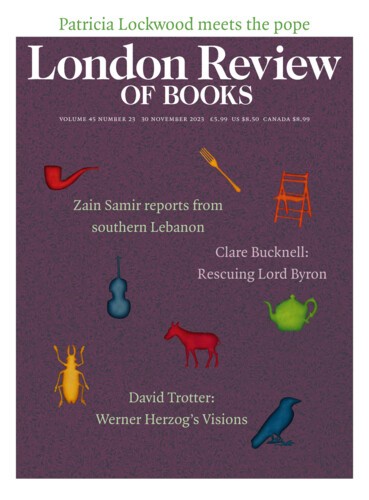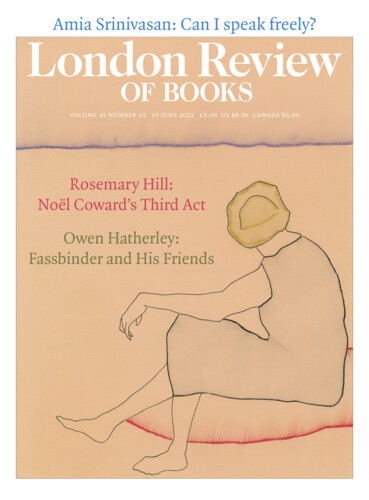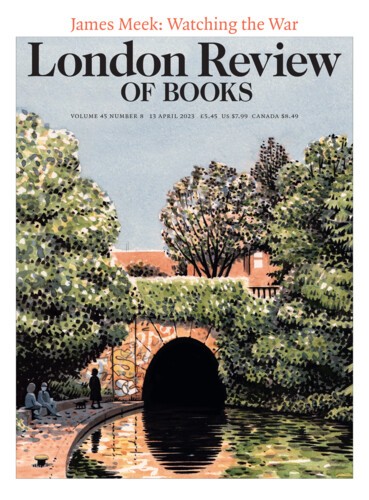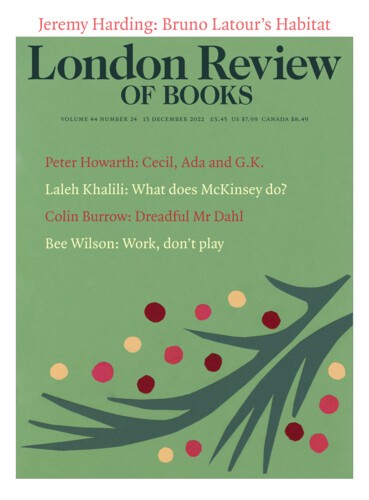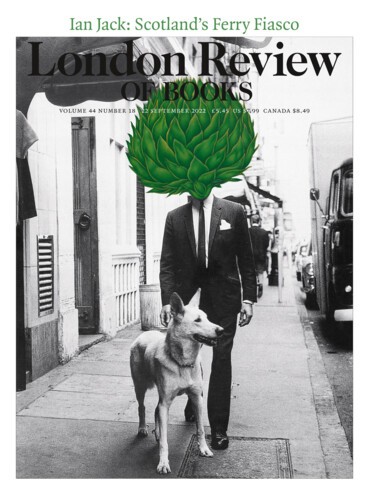Go for it, losers: Werner Herzog’s Visions
David Trotter, 30 November 2023
The only reason Werner Herzog hasn’t yet made a film about the Ancient Mariner may be that, having already inadvertently incorporated so many elements of the poem into his own work, he has become him. Herzog certainly shares Coleridge’s interest in the physical and spiritual toll taken by epic voyages into uncharted waters. There are several rafts as well as a phantom schooner...
